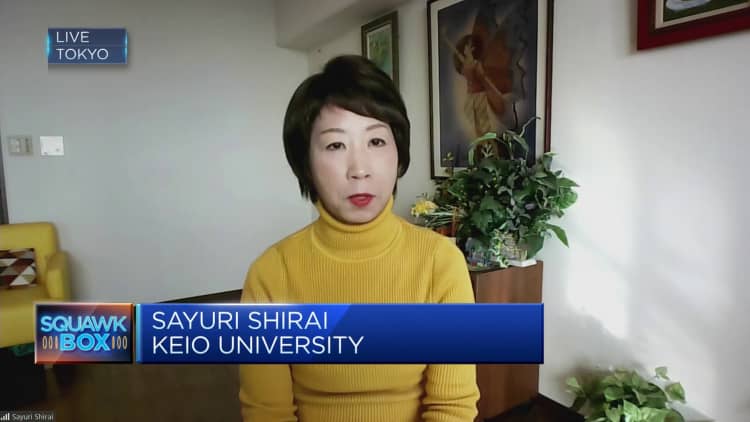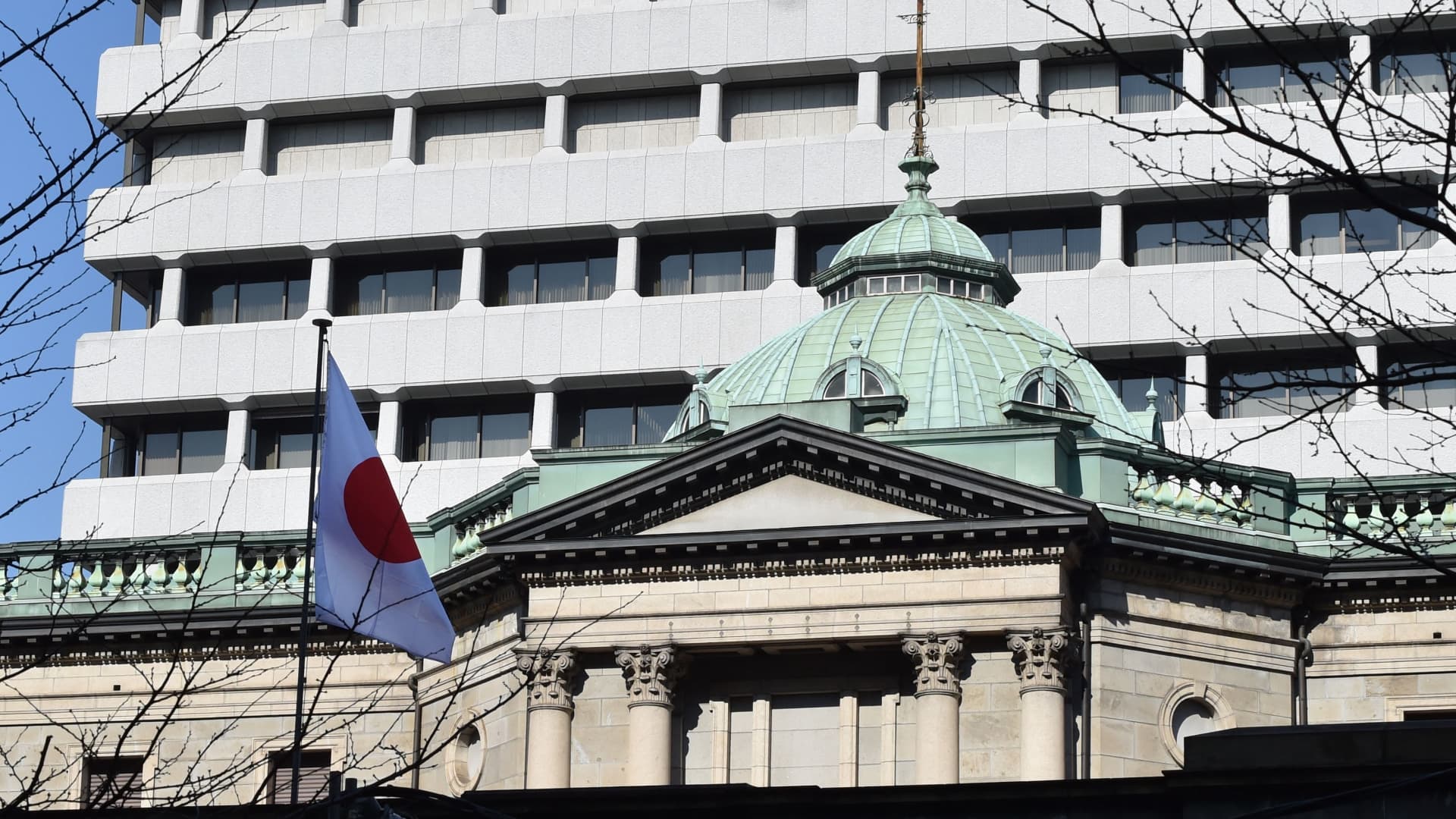The Bank of Japan headquarters is seen in Tokyo on January 30, 2017. The Bank of Japan will pull the plug on its eight-year negative interest rate policy in April, according to more than 80% of economists polled by Reuters, marking a long-awaited major shift from a global outlier central bank.
Kazuhiro Nogi | Afp | Getty Images
The Bank of Japan will pull the plug on its eight-year negative interest rate policy in April, according to more than 80% of economists polled by Reuters, marking a long-awaited major shift from a global outlier central bank.
Nearly the same proportion of economists, 76%, also expect the BOJ to scrap yield curve control at that meeting, with almost all saying ultra-loose monetary conditions will end then, just months before many major central banks are expected to start cutting rates.
The BOJ is on track to end negative interest rates in coming months despite Japan’s economy slipping into a recession, sources have previously told Reuters.
In the Feb. 15-20 Reuters poll, 25 of 30 economists, or 83%, said the central bank will in April ditch its minus 0.1% short-term deposit rate, which has been in place since January 2016.
“(The BOJ) can make a decision at April’s meeting based on the preliminary results of the annual labor-management wage talks for big firms and the hearings from BOJ branch managers on wage trends in small and mid-sized firms,” said Yoshimasa Maruyama, chief market economist at SMBC Nikko Securities.
Two entities, Daiwa Securities and T&D Asset Management, chose March. Another said June and two others selected 2025 or later.

“The longer (BOJ) waits, the more likely it is to miss the right moment as the uncertainty of foreign factors increase,” said Mari Iwashita, Daiwa Securities’ chief market economist, referring to an impending policy shift by the BOJ’s peers.
Nearly every economist, 91% providing end-quarter rate forecasts, expects negative rate policy to be abandoned by end-year, up from 82% in January’s poll.
BOJ Governor Kazuo Ueda, however, has repeatedly stressed Japan’s monetary conditions will likely remain accommodative even after the central bank scraps negative rates.
The poll also showed 25 of 29 economists â or 86% â expecting BOJ to end YCC, far surpassing four who said it would be modified. That was roughly in line with January’s poll.
Of those 25 economists, 19 expected the central bank to dismantle YCC in April. All but one of the 19 respondents said an end to negative rates would happen simultaneously.
Almost every economist, 97% of those polled, predicted average wage growth and base salary increases in the next fiscal year starting in April would exceed this year’s 3.58% at big Japanese firms, up from 90% when asked in January.
For Japanese firms, including small and mid-sized firms, the poll increase was sharper, with 90% of economists anticipating a bigger increase, up from 77% in January and 65% in November.
The range of pay increases will fall between 3.6% and 4.36% in mid-March for big companies and between 1.5% and about 4.0% for overall businesses, economists said.

